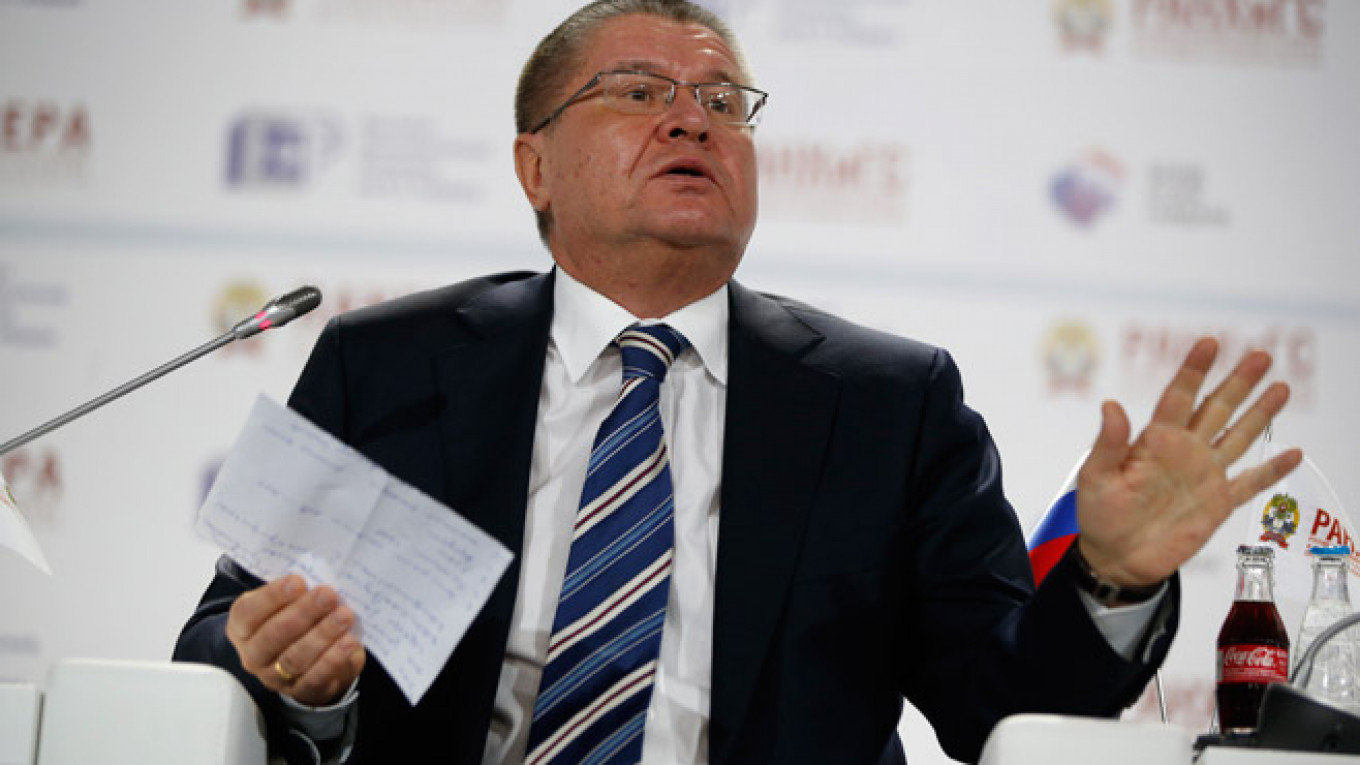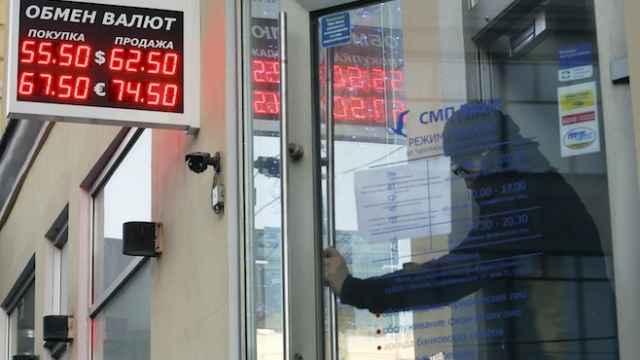Russian officials and experts warned Wednesday that an expected decision by Standard and Poor's to deprive Russia of its investment-grade credit rating could cost the country up to $30 billion and drain more money from an economy that is already entering recession.
Major credit rating agencies Fitch and Standard and Poor's currently rank Russia one notch above junk.
Standard and Poor's placed Russia on negative credit watch last month and said the country's status would be re-evaluated in mid-January.
A downgrade to junk would mark Russia's return to the investment grade it held until 2004 and could trigger a sell-off by conservative investment funds barred from buying sub-investment grade securities. Analysts also warned the move could spook equity and bond traders.
"It's not worth underestimating the indirect effects on the market," said Konstantin Artyomov, a money manger at Raiffeisen Capital in Moscow, in written comments Wednesday.
$30 Billion of Consequences
If Standard and Poor's withdraw Russia's investment-grade credit rating it could activate clauses in debt agreements causing Russia's repayment deadlines to be brought forward, according to Economic Development Minister Alexei Ulyukayev.
"If Standard and Poor's make a move then there will be material consequences," Ulyukayev told Russian radio station Business FM on Wednesday.
"We can't say exactly what sum, intuitively it's about $20 billion to $30 billion."
Fleeing Money
As investment funds are often governed by rules stipulating they cannot buy into countries without an investment grade, junk status for Russia would lead to investor flight.
"A mass exit of investors from Russian assets is possible," Anna Nesterova, the head of investment company Capital Center, wrote in a commentary for the Russian news agency TASS on Tuesday.
Such an exodus would mean Russian firms, already squeezed by Western sanctions over the Ukraine crisis that restrict access to EU and U.S. capital markets, would need to look for new sources of finance.
Setting a Precedent
While Standard and Poor's said last month that there was a 50 percent chance of Russia's sovereign rating being downgraded to junk within 90 days, other rating agencies have been more cautious.
Fitch downgraded Russia to one notch above junk last week with a negative outlook, meaning a further downgrade is likely. Rating agency Moody's lists Russia two notches above junk.
If two or more rating agencies give Russia junk status then it will trigger the exit of more investment funds and intensify the outflow of capital, according to Dmitry Dudkin, head of fixed income research at UralSib Capital.
"The cheaper oil is, the greater the chance of such a scenario," said Dudkin by telephone. Crude oil has fallen over 60 percent since June highs of $115 a barrel.
Inevitable?
Russian markets, already hit hard by Western sanctions and an approaching recession, have priced in the consequences of further rating downgrades, according to some analysts. But few expect they can be avoided.
"A Standard and Poor's decision to lower Russia's rating is unavoidable given the oil price and difficult situation facing the Russian budget," said Raiffeisen Capital's Artyomov.
Even Ulyukayev was not optimistic when asked Wednesday about the likelihood of a Standard and Poor's downgrade. "The chance is quite high," he said, according to TASS.
Contact the author at h.amos@imedia.ru
A Message from The Moscow Times:
Dear readers,
We are facing unprecedented challenges. Russia's Prosecutor General's Office has designated The Moscow Times as an "undesirable" organization, criminalizing our work and putting our staff at risk of prosecution. This follows our earlier unjust labeling as a "foreign agent."
These actions are direct attempts to silence independent journalism in Russia. The authorities claim our work "discredits the decisions of the Russian leadership." We see things differently: we strive to provide accurate, unbiased reporting on Russia.
We, the journalists of The Moscow Times, refuse to be silenced. But to continue our work, we need your help.
Your support, no matter how small, makes a world of difference. If you can, please support us monthly starting from just $2. It's quick to set up, and every contribution makes a significant impact.
By supporting The Moscow Times, you're defending open, independent journalism in the face of repression. Thank you for standing with us.
Remind me later.







